What Does Google Know About You? I was Shocked Even as a Digital Marketer
Following the Cambridge Analytica scandal, we were talking in the office about how much the likes of Facebook, Twitter, LinkedIn and Google etc really know about us. I've worked in digital marketing for over a decade so I am aware they know a lot, but I was still shocked by the level of detail I uncovered when I really looked into it for myself.
From audio files of my wife and son that we never chose to record to knowing where my son goes to nursery and how many times I stopped at McDonald's when on the road with work, they know a hell of a lot.
The Elephant in the Room
This is a conflicting issue for me. I started an inbound marketing agency and rely on tracking information to do better marketing for clients. This includes data from Google.
From the way people browse our clients' websites back to the search terms they use, we need from Google Analytics and Google Adwords' respective insight. The more data we have, the better marketing we can do.
I also see the demand we, as the general public, have created for Google to understand us, to make our experiences with their products better. We want them to understand our context in search and show us adverts that are relevant and timely.
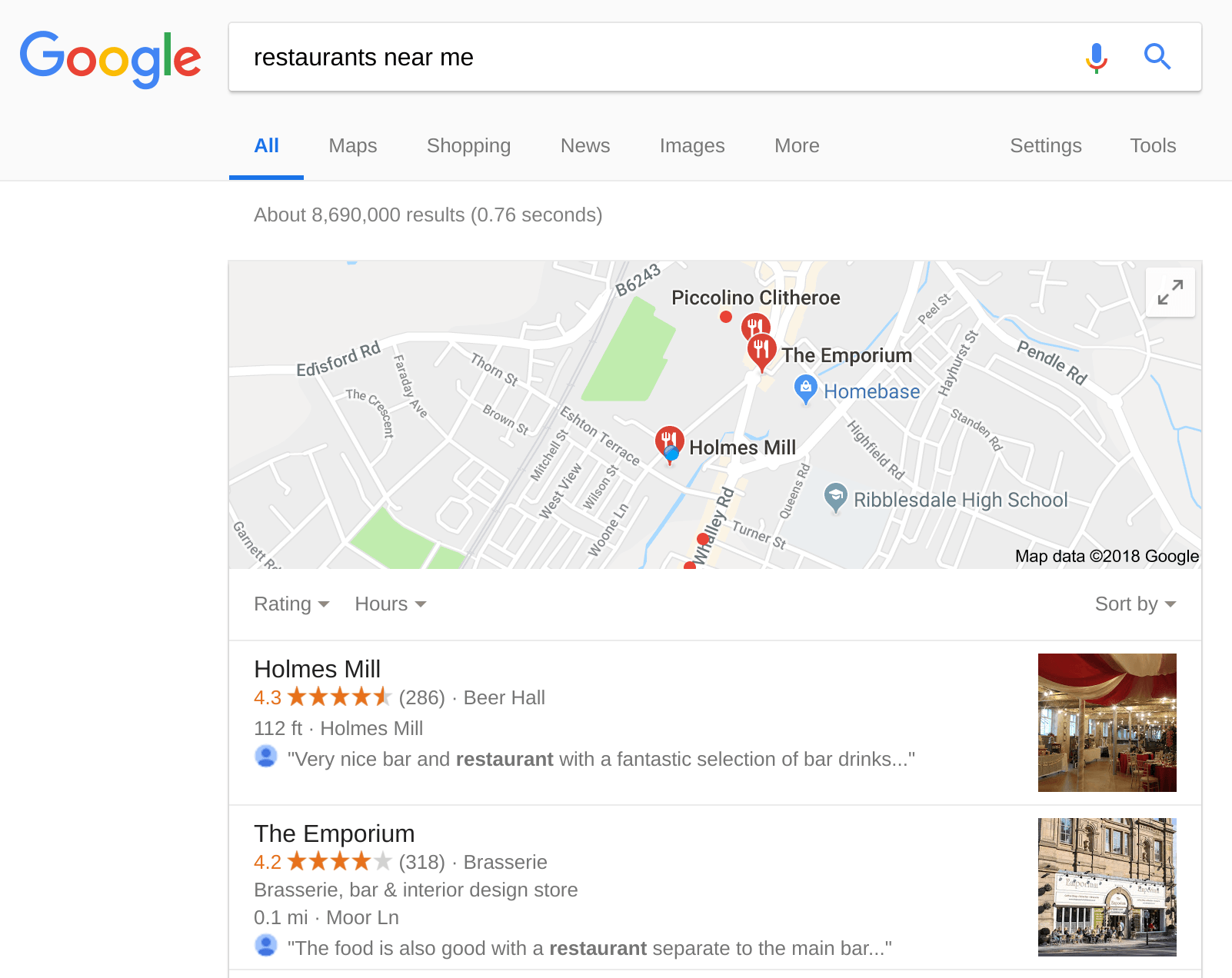
But on the flip side, there has to be a limit to what is 'needed' and what they are storing just because they can, and in this piece, I'll highlight some of those areas that did make me uncomfortable.
Let's dive in to exactly what Google does know about you...
Quick note: Before I jump into what they know, it's worth noting I'm a proper Google person (Pixel phone, Pixelbook, Google Apps For Business etc), so I have information in all these sections. You may not, depending on your devices, habits etc but I would hazard a guess they do have a lot on everyone. I've provided links in each section so you can check for yourself.
Location Data
Let's start with this one as it's the portion of data which originally caught my eye and made me look into this further. It was also something which, when I discussed it in the office, made people realise the extent to which knowledge-gathering was happening.
"If you have kids, like I do, this bit makes me feel uncomfortable, they can clearly see not only my home address but where my son goes to nursery and the play centres we take him to."
If you use an enabled device (such as my Pixel phone or any Android device), they track your every movement, all day, every day. Below is the snapshot of my locations (zoomed in on the UK) over the last few months.

Not too bad? Nothing too personal?
Well, click on an individual day and it gets a tad more interesting.
In the example below, I was shopping for a new car with my family. You can see everywhere we went that day around town and the travel to and from the car showrooms.
Perhaps the most interesting items are on the left, where it tracks how I moved (driving, walking etc), how long it took, how many miles I covered and which actual stores I went in.
I immediately thought that if I was a marketer for a car company, it would be amazing to know which showrooms that prospects have been going to.
And if you're wondering, VW, Audi and BMW dealers round our way might benefit from firing some Display Ads my way! :)
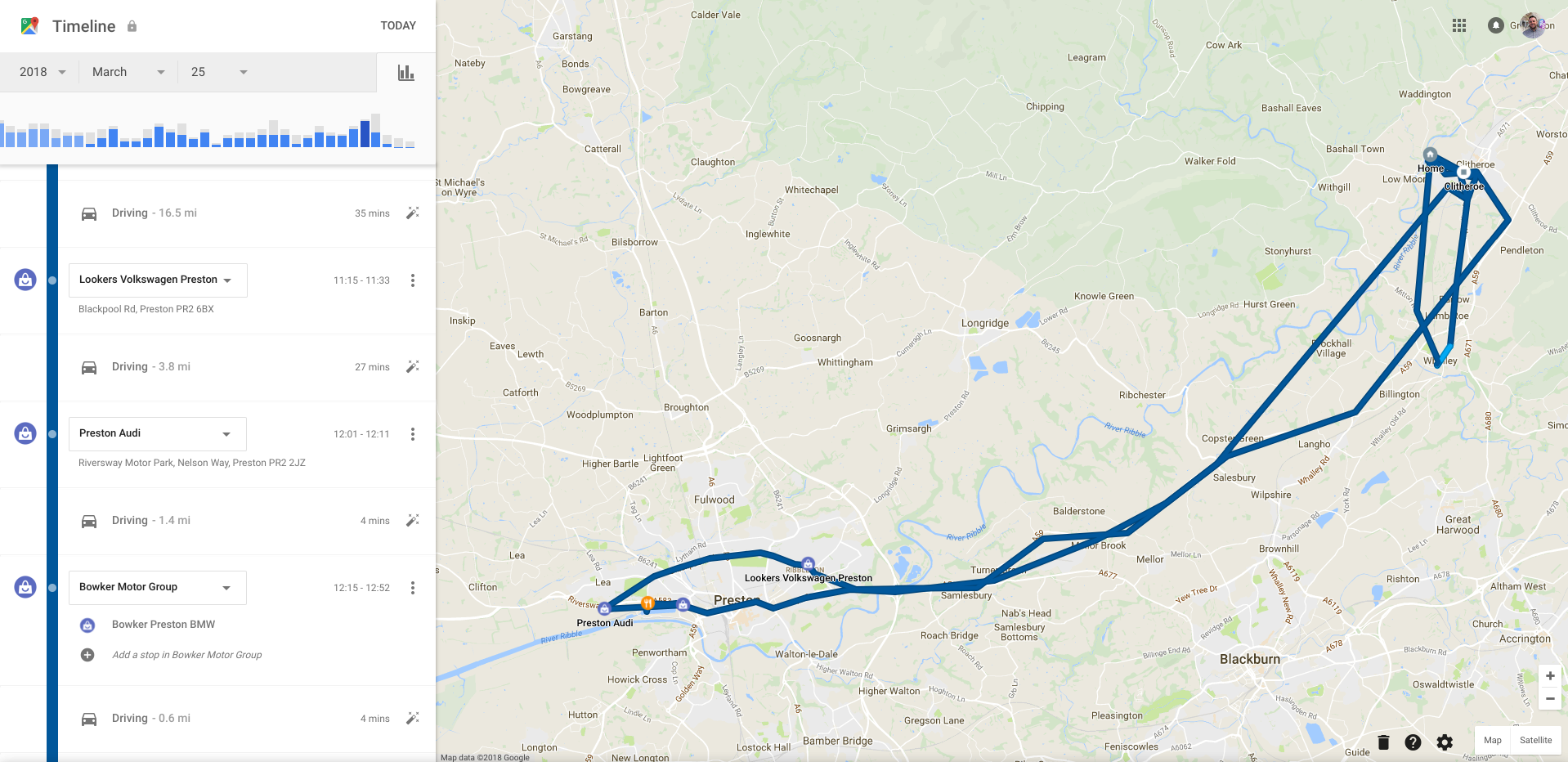
The final item to show here is the places section. Clicking this will show all the places you have visited. They also keep a list of the most visited places and know my home address without me providing it, just by the frequency and times of day I travel there.
If you have kids, like I do, this probably makes you feel uncomfortable, they can clearly see not only my home address but where my son goes to nursery and the play centres we take him to.
Rather embarrassingly, McDonald's features on the most popular list - I have to assume it's a cumulative tallying of McDonald's restaurants, as I don't go to the one near home often, but when I travel for work, it's usually the easiest place to stop at. Honest!
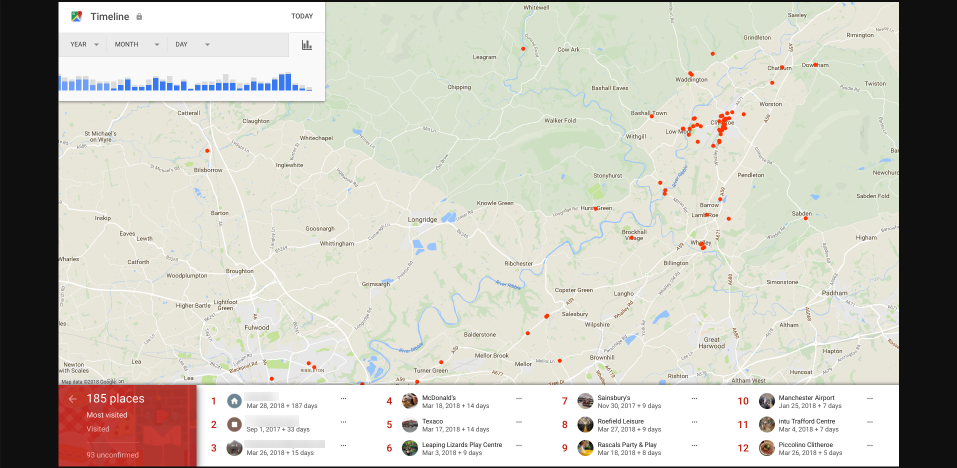
Where to find this for yourself.
Search Data
Perhaps the least shocking section, but worth mentioning due to the sheer amount of information they have here, is your Search Data. Google stores every single search you make, as you can see below in the screenshot of the day I was car shopping.
What people may not know is that Google keeps your search history even if you delete it as they store it on a different database. They also do this per device. You need to manually go in every device and delete the information if you don't want Google to have a record of it.
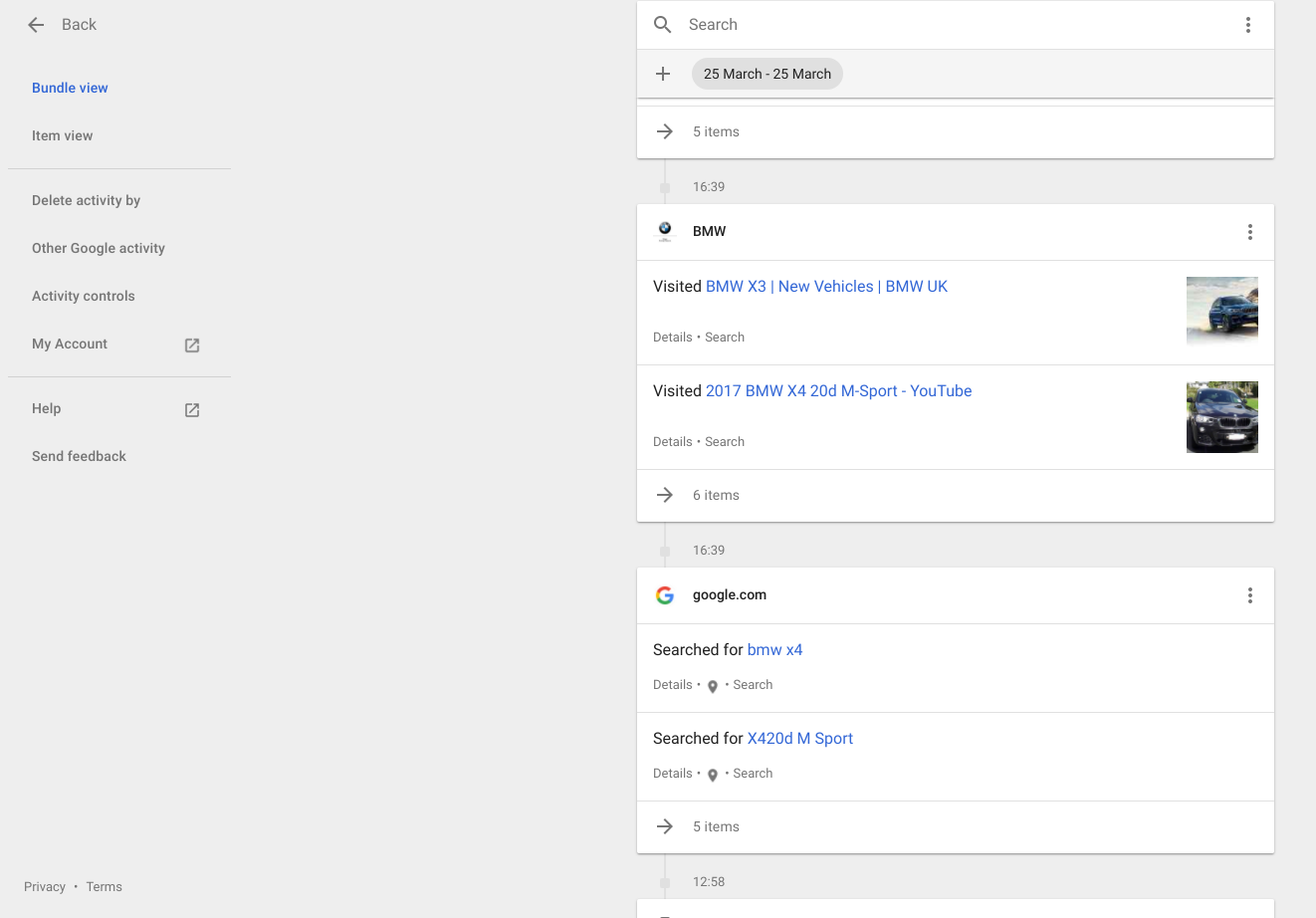
Within the same section of data, Google also stores your app usage on every device. Data is bundled into app usage numbers and the time I used them. Your habits are all stored by Google and they undoubtedly know more about your device usage habits that you do.
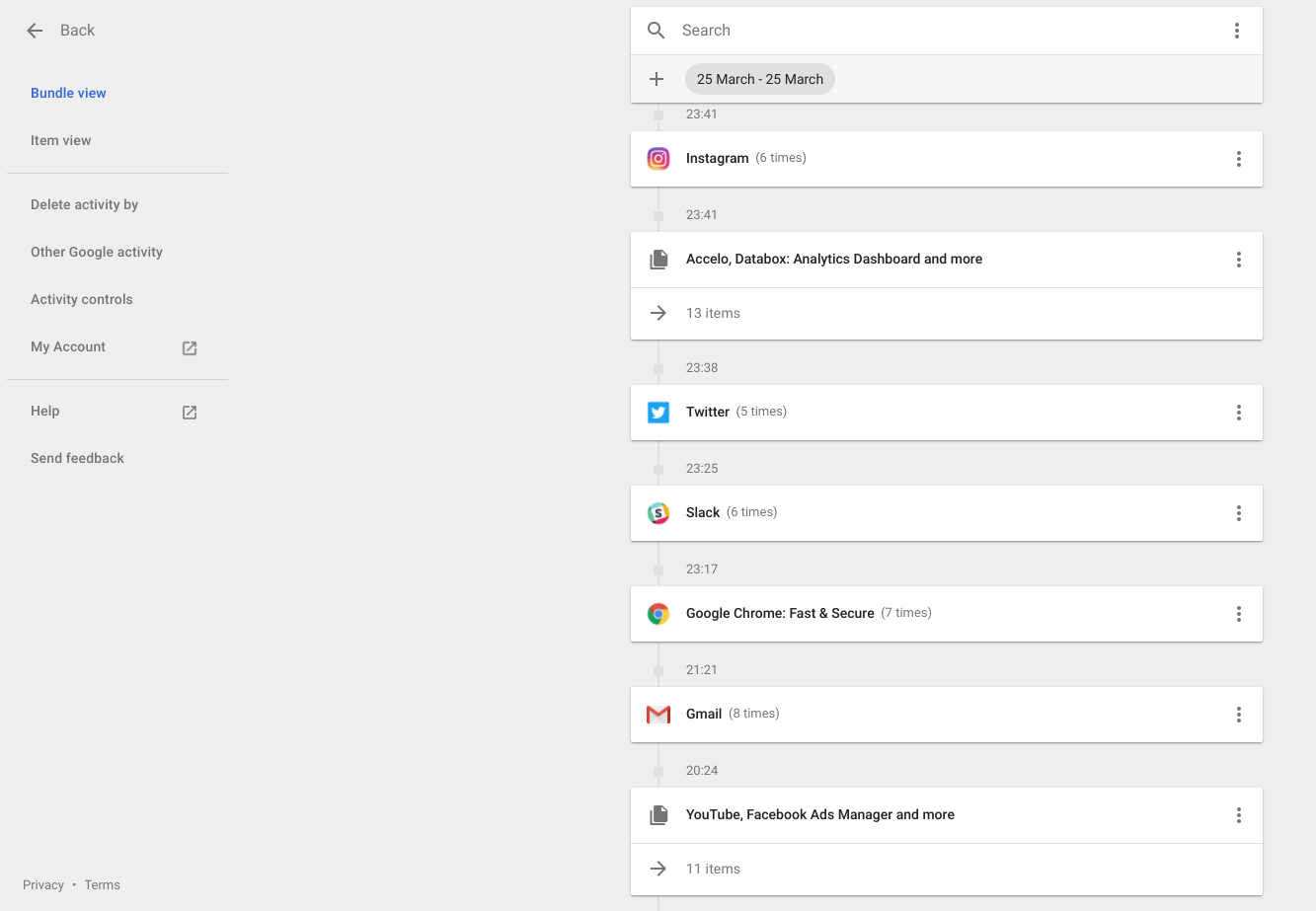
Where to see and delete this data is here.
Ad Profile
Google builds an advertising profile of every one of their users. As you'd expect.
This isn't restricted to the searches you make and websites you visit (which is what's used to do Remarketing), but also a proactive profile so that companies can target you on the Display Network as you browse other non-Google websites.
Here is my profile...
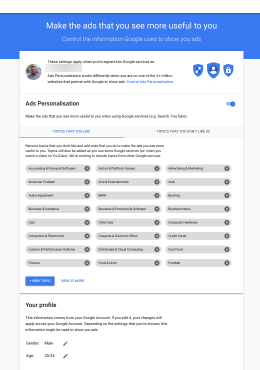
They have done a decent job - gender, age and some good interest matches (Football, Food & drink, Advertising & Marketing... Cats) but they have a few completely wrong (American Football being the most obvious).
On the whole though, I would say they know me pretty well. The positive UX of this is that Display ads should be more tailored and relevant to my interests as I browse the internet.
Click here to find this for yourself.
Apps
Google keeps a list of every app you have linked with your account. I actually think this is very useful as opposed harmful, as you can easily revoke access to old connections.
From my screenshot below, you can see I used the WiFi in a hospital once, so the NHS still has access to my "basic" data, but I will have only needed the service for a few minutes.
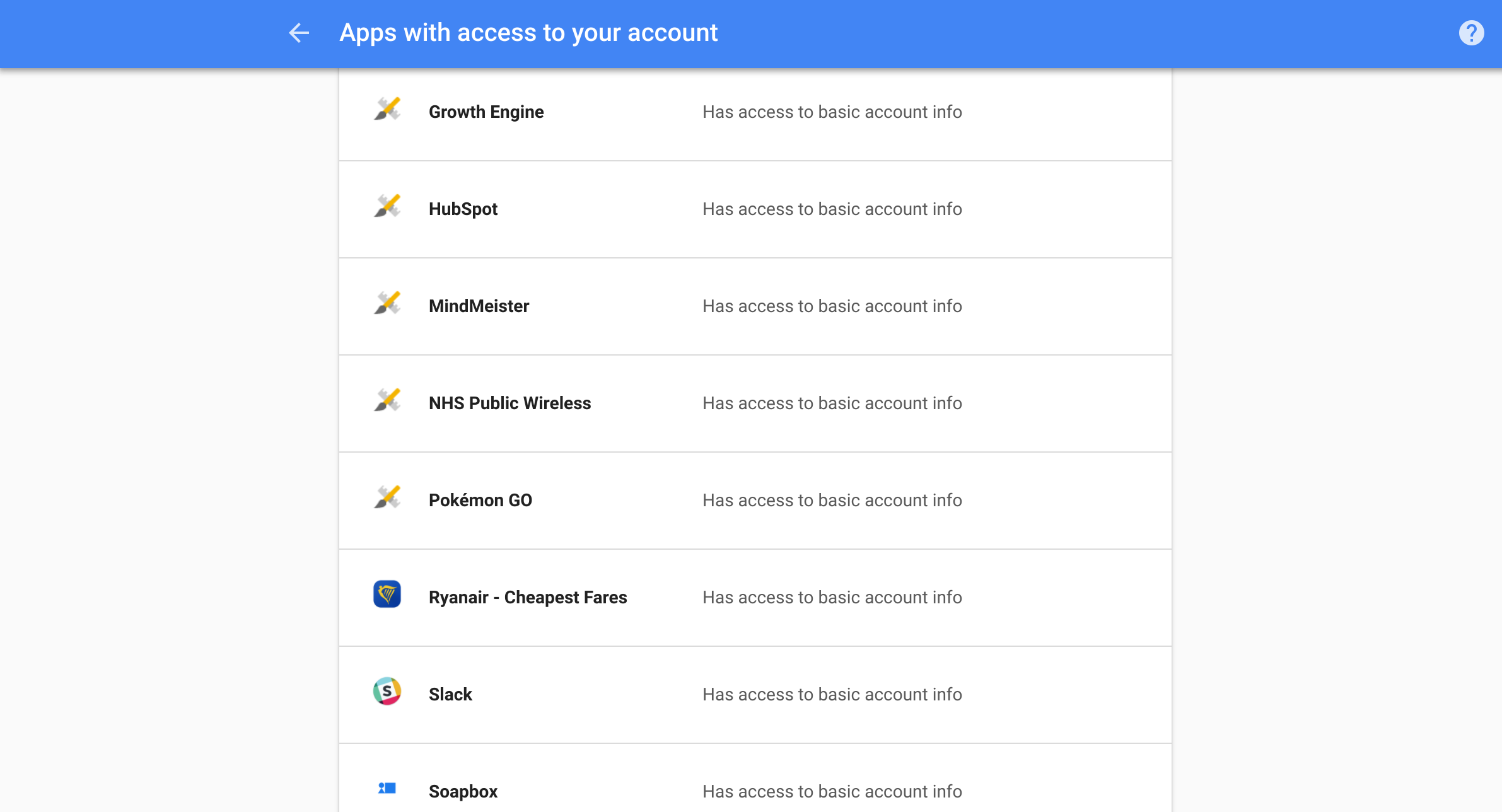
P.S. Yes, I did play Pokemon Go :)
Head here to see this for yourself.
Voice (This Will Really Creep You Out)
This is a really odd and concerning item, even for someone as non-fussed about these type of things as I am.
Within the activity log, there is a section called Voice & Audio. I don't use any Google voice functions (Google assist or Google Home) so my data here should be empty... but it actually has a file in it.
I can't figure out where the audio is from, but it's my wife talking to my son. My best guess is it could do audio from a video I took but I couldn't find a match.
The next weird thing I noticed here is the mention of transcripts. It wasn't available for my audio but what should be going on here? Do they transcript audio I take on my phone and store it?
This whole section / idea was the one the made me felt most icky...
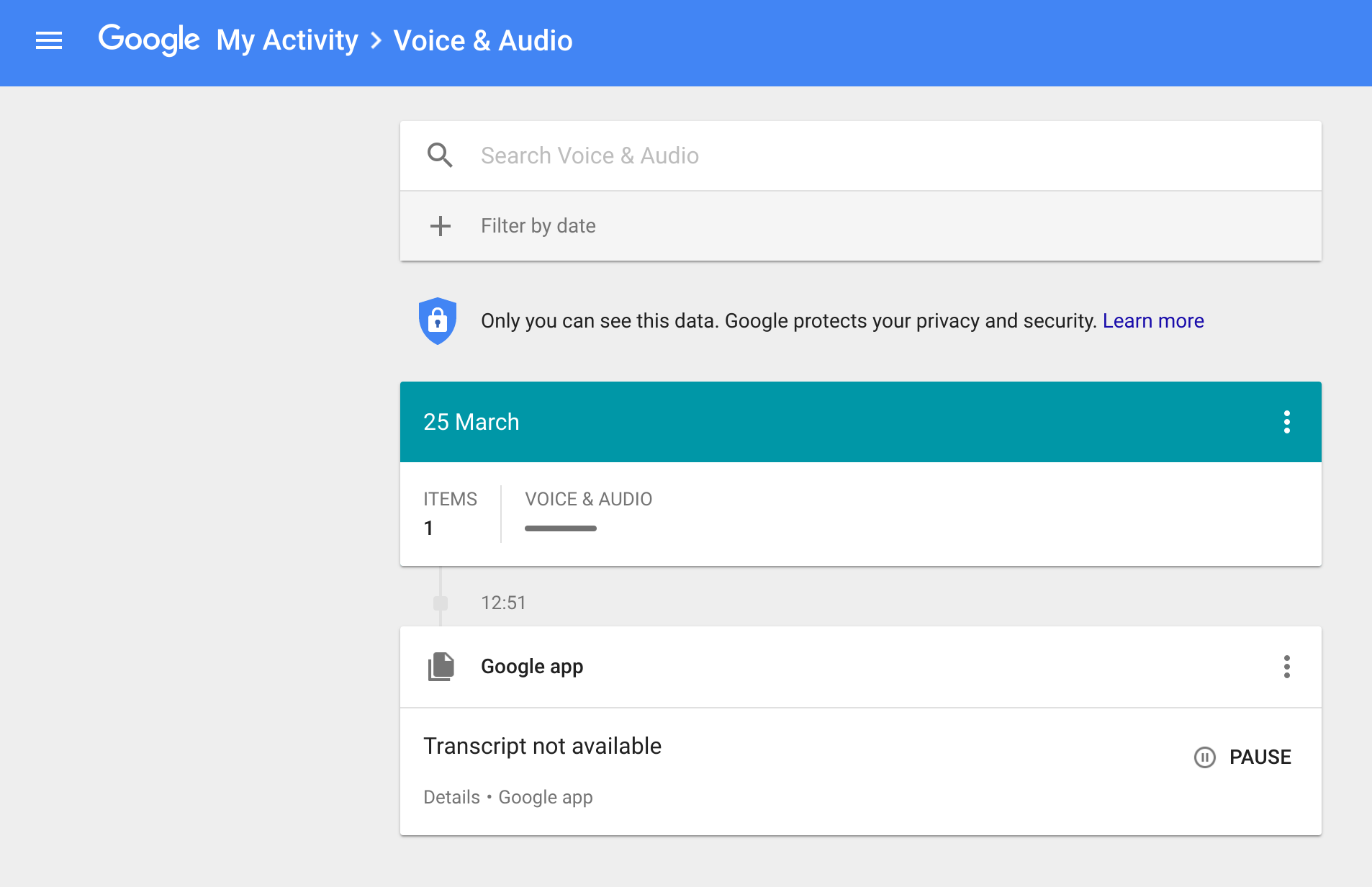
Where to find this for yourself is here.
"Within the activity log, there is a section called Voice & Audio. I don't use any Google voice functions (Google assist or Google Home) so my data here should be empty... but it actually has a file in it.
I can't figure out where the audio is from, but it's my wife talking to my son."
YouTube History
Ok, onto YouTube. Google stores what you watched, when you watched it, what you searched for, comments you made and interactions with the community.
Perhaps harmless enough, but other people easily use your account on a Smart TV or iPad, and YouTube has some pretty cavernous rabbit holes to fall into.
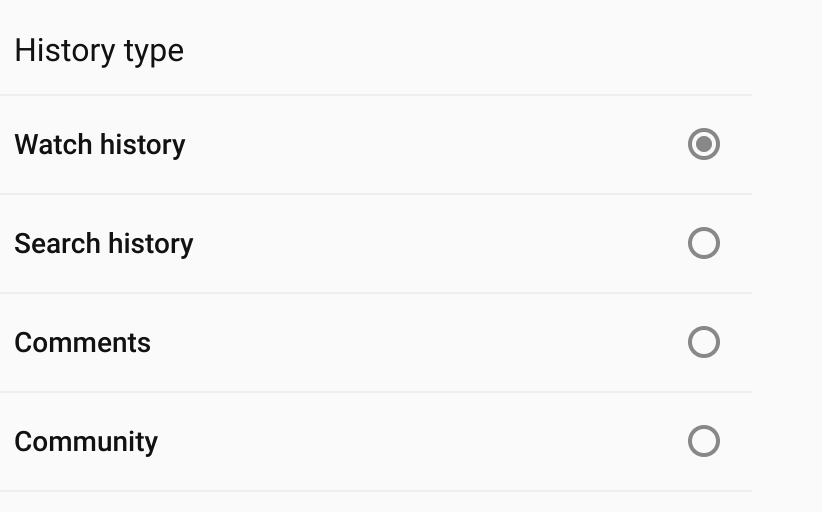
Here is an example of my recently watched video (research Oli Gardner before we had him on the podcast).
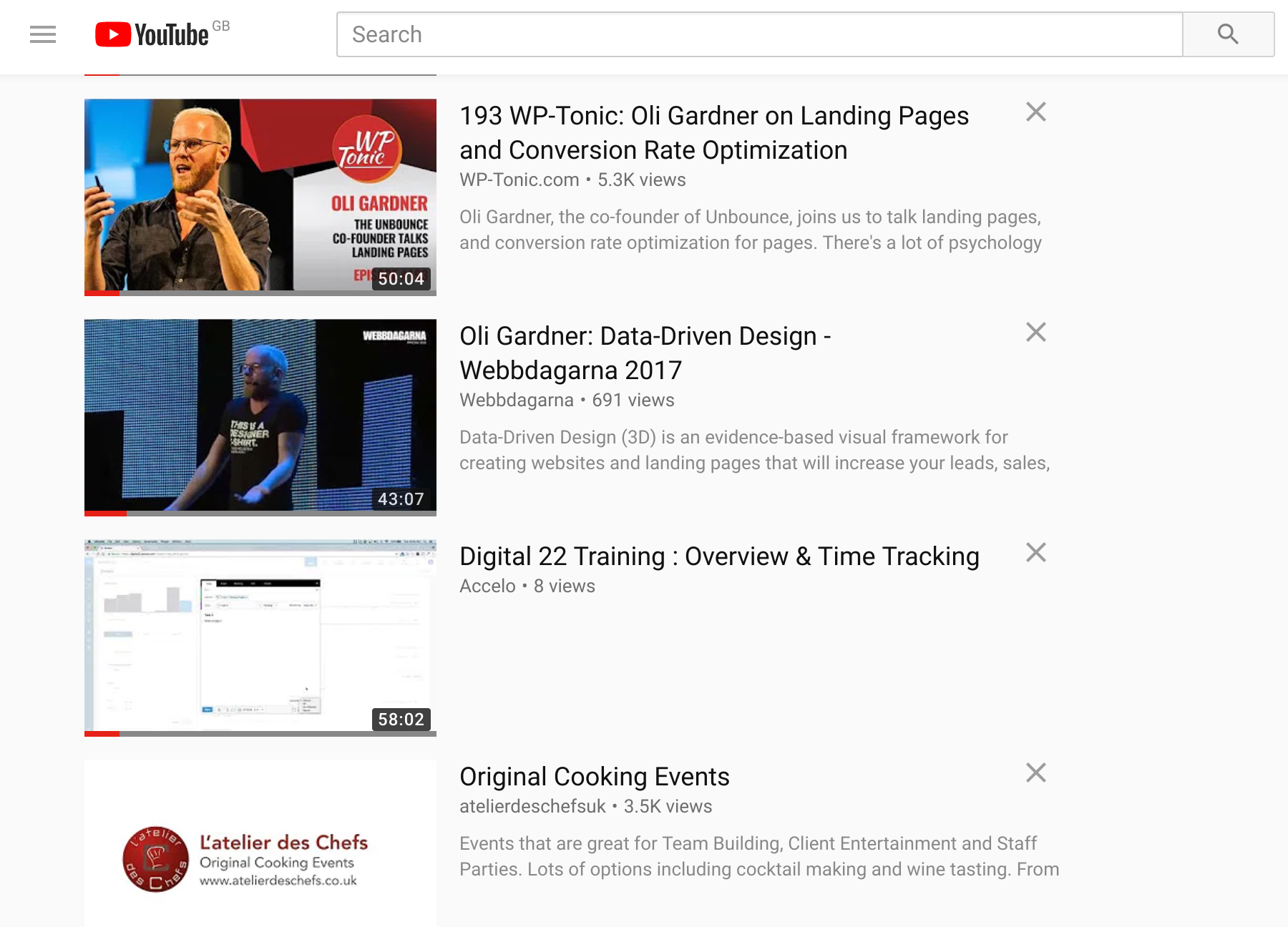
If you're interested, here's where to find this for yourself.
Downloads
Right, this is where is gets super interesting.
I didn't know this but you can request a download of everything Google knows about you to look through yourself. The download screen give an indication of the scope here...

At first, when I downloaded everything, the file was huge (around 150GB) and therefore pretty hard to navigate. I took out some bulky export types and it sent me two folders (around 15GB in total).
Screen shots below...
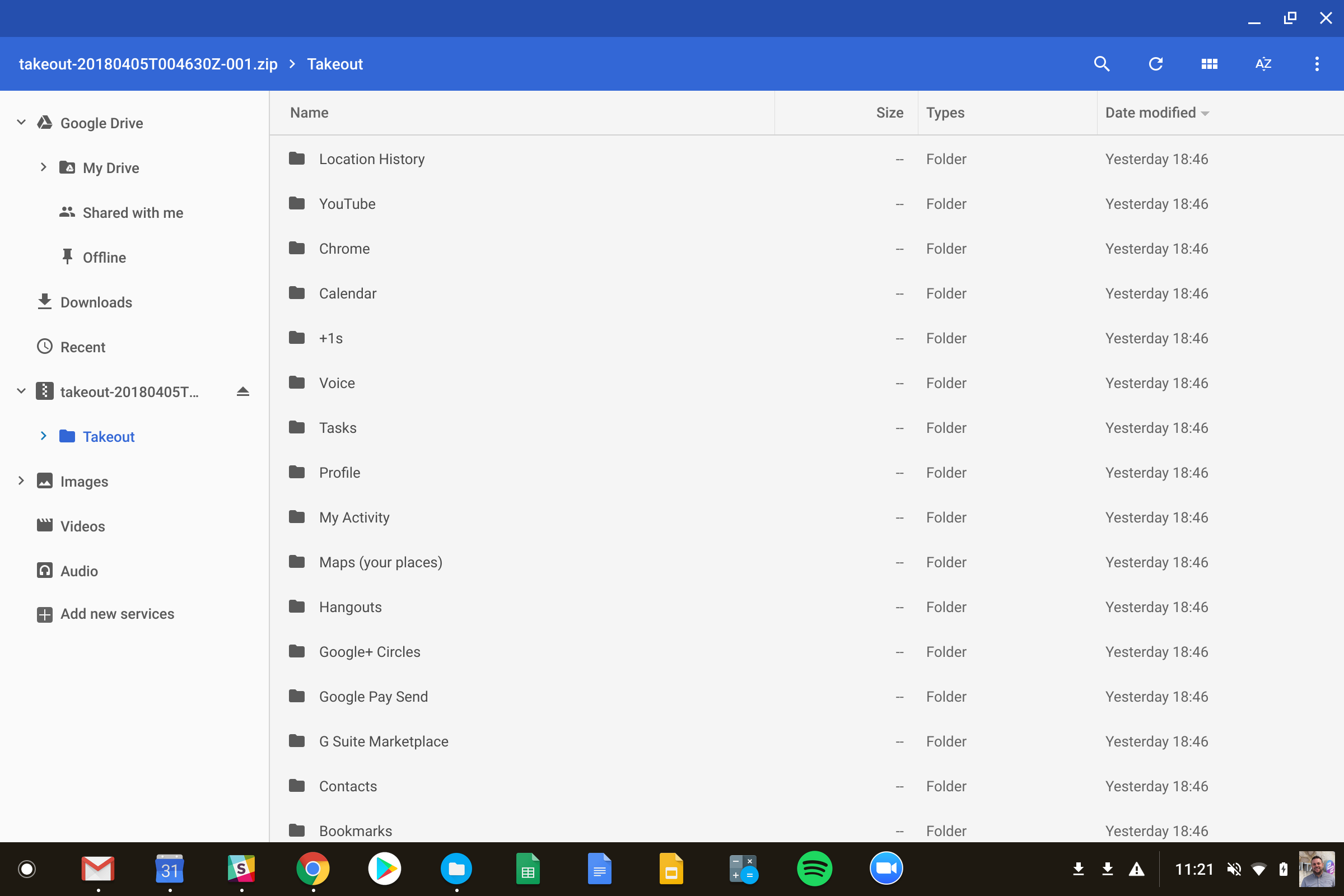
Inside these folders, you'll see the amazing amount of data Google has stored on you. There is the stuff you'd expect: your emails, bookmarks, files stored on Google Drive, photos, search history, Apps downloaded, App usage, contacts from your gmail and Google+, your calendar details... But some of the unexpected highlights include:
- Every Google Ad you have ever interacted with
- All your Google Drive files which have been deleted
- Every email sent to you and you have sent, including ones which have been deleted
- Devices you have owned
- Purchase history - companies you have brought from and the items you have bought
- Every time you walk - where, when and how many steps (Google Fit)
- Every website you have visited and when
- Every App you have searched for
- Images you have downloaded
Personally, I'm not too bothered about things like this - I don't get up to anything I wouldn't tell anyone about. But I can clearly see how some people might feel this is a little intrusive and Big Brother-y, especially if this data was ever compromised or sold to the highest bidder.
It's the storing of deleted files that gets to me the most.
Where to find this for yourself is here.
In Summary...
I'm pretty split on this issue. It's quite the paradox we find ourselves in here.
Here are some positives to all this data knowledge that Googles learns about our internet usage...
- I want Google to be smarter and quicker and they rely on past-usage data in order to establish my current-search context.
- I want Google to be able to answer queries, like where I can find an Italian restaurant or a petrol station, without asking for a location keyword.
- They have to show me adverts (it's how they make money) so I'd rather they be relevant and they need data to do this.
- Google's the leading search engine because they show me search results they believe I will like - and they're always getting better at it, thanks to this rich data pool.
- It's good they have records so I can easily access items, like the name of that website I forgot but I can remember I looked at it yesterday.
- Part of me think, "Who cares?" If someone knows the car show rooms I visit or that I played Pokemon GO, so what? I'm not doing anything I wouldn't tell someone about if they asked.
Then, on the other hand:
- The bits related to my son felt very uncomfortable - who else might potentially know where he goes to nursery and where we take him to play?
- If I delete something, I want it to actually be deleted not just deleted from what I can see easily and it still be stored in another database. My files, for example - I want them deleted so why does Google get to keep them?
- There will be a point where this goes too far and there are signs of it already - the Voice & Audio section and the mention of transcripts, for example. And we've all heard about Google Home/Alexa horror stories.
I guess, from learning all this, my advice would be to be more aware of what you share, your settings and actually look at what companies do have on you.
Here's how you can do that...
- If you are worried, you can control what Google tracks from here: https://myaccount.google.com/activitycontrols
- You can do a step by step Privacy check here: https://myaccount.google.com/privacycheckup
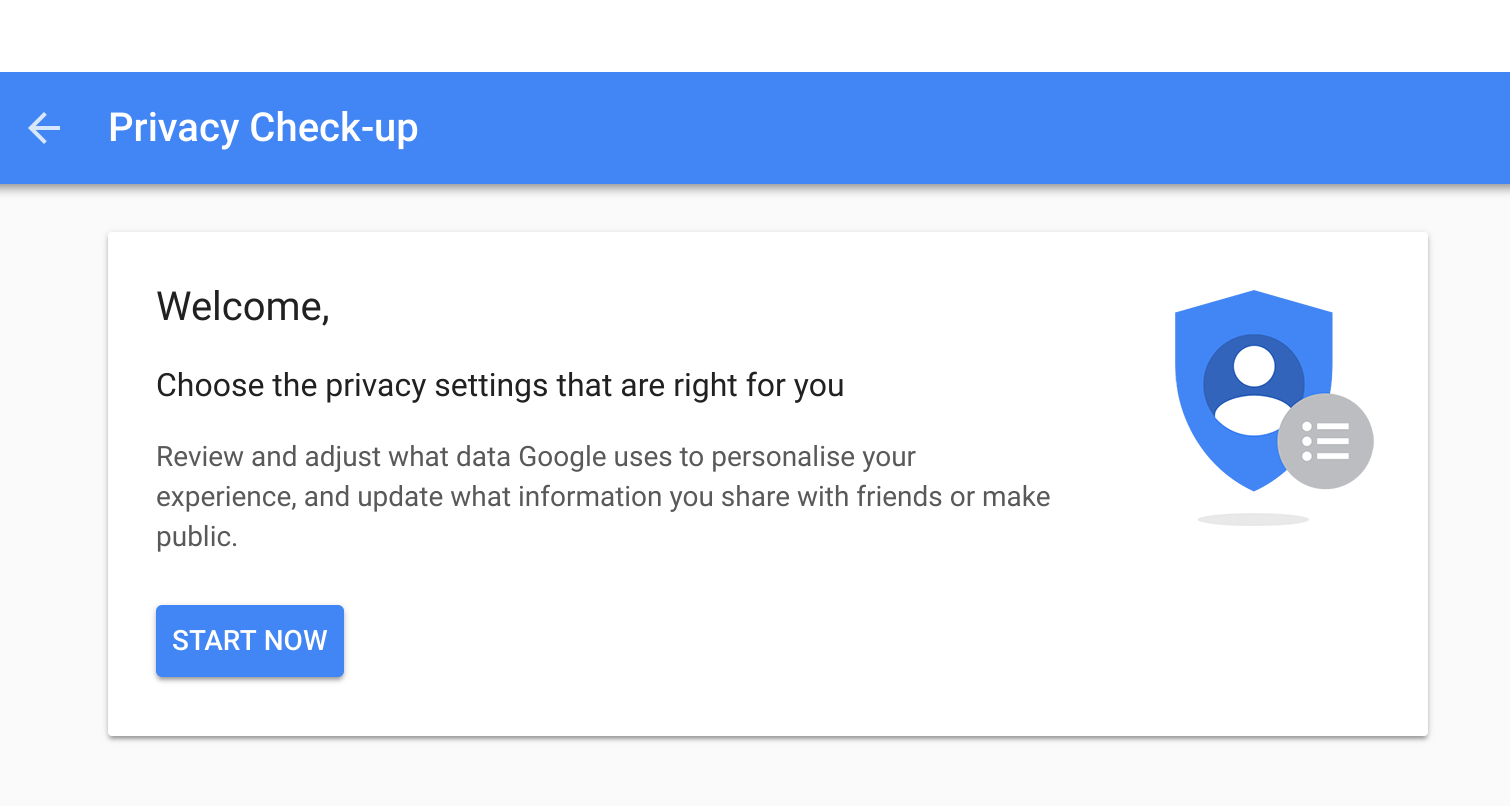
What do you think of this? Are you surprised by any items they track? How does it makes you feel?
Are you happy it's making your web experience more personalised or are you creeped out?
Let us know on social media or in the comments below.
And, whilst you're here, the inbound marketing agency I mentioned at the beginning of the post exists in order to help you reach new customers in a helpful and non-intrusive way. See which platforms can help you do this and put the Google keyword insights, mentioned above, to good, ethical use as part of an inbound marketing strategy.
Real Growth. Real Impact.
'Should I use HubSpot?' 32 fundamental reasons why you should
21 cost-effective marketing campaigns you can create right now
Breeze: Everything you need to know about HubSpot's powerful AI
INBOUND 24 learnings and updates
Time to rethink your whole SEO and content marketing strategy
Why it's vital and how to start building customer-led sales and marketing
How is AI disturbing Google search results and what can you do about it
See why enterprises choose Avidly
Let’s build your HubSpot success story
Compelling final call to action - with accompanying link to Contact page








